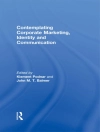Analysis of the direction in which Ghana’s policy makers will need to steer the economy for Ghana to fulfil the promise of its independence over 50 years ago.
As Ghana enters its second half-century there is a widespread perception of failure of the economic and political system in delivering improved living standards to the population. This failure comes despite a solid transition to democracy, despite a recorded recovery from the economic malaise of previous decades and despite a reduction on measured levels of poverty. The contributors in this book analyse the reasons for this failure and sets out an analytical agenda as the basis of the course that the nations’ policy makers will have to steer if Ghana is to fulfil the promise of its independence in 1957.
ERNEST ARYEETEY is Director of the Institute of Statistical, Social& Economic Research, University of Ghana at Legon; RAVI KANBUR is Professor of Economics at Cornell University.
The contributors include: Ernest Aryeetey, Ravi Kanbur, Tony Killick, Augustin Fosu, Charles E. Youngblood, David L. Franklin, Stephen Kyereme, Frank W. Agbola, Susanna Wolf, Daniel Bruce Sarpong, Peter Quartey, Theresa Blankson, Thierry Buchs, Johan Mathiesen, William F. Steel, David O. Andah, Harold Coulombe, Anthony Tsekpo, Charles D. Jebuni, Andy Mckay, Nii K.Sowa, Kojo Appiah-Kubi, Abena Oduro, Bernadin Senadza, Felix A. Asante, Joseph R.A. Ayee, Kwabena Gyimah-Brempong, Elizabeth N. Appiah, Niels-Hugo Blunch, G.J.M. Van Den Boom, N.N.N. Nsowah-Nuamah, and, G.B. Overbosch.
Ghana: Woeli Publishing Services(PB)
สารบัญ
Ghana’s economy at half-century – Ernest Aryeetey and Ravi Kanbur
What drives change in Ghana? – Tony Killick
Ghana’s post-independence economic growth: 1960-2000 – Ernest Aryeetey and Augustin Fosu
Persistent public sector deficits ¯oeconomic instability in Ghana – David L. Franklin
Persistent public sector deficits & macroeconomic instability in Ghana – Curtis E. Youngblood
Effects of exchange-rate volatility & changes in macroeconomic fundamentals on economic growth in Ghana – Stephen S. Kyereme
Ghana’s exchange-rate reform & its impact on balance of trade – Frank Agbola
Export performance & investment behaviour of firms in Ghana – Daniel Bruce Sarpong and Susanna Wolf
Household savings in Ghana: does policy matter? – Theresa Blankson and Peter Quartey
Banking competition & efficiency in Ghana – Johan Mathiesen and Thierry Buchs
Rural & microfinance regulation in Ghana: implications for development of the industry – William Steel
Rural & microfinance regulation in Ghana: implications for development of the industry – David Andah
Ghana census-based poverty map – Harold Coulombe
Budget implementation & poverty reduction in Ghana – Tony Tsekpo and Charles D. Jebuni
Does inflation in Ghana hit the poor harder? – Nii Kwaku Sowa and Andy Mc Kay
Understanding poverty in Ghana: risk & vulnerability – Bernardin Senadza
Understanding povertyin Ghana: risk & vulnerability – Abena D. Oduro
Understanding poverty in Ghana: risk & vulnerability – Kojo Appiah-Kubi
Decentralization & poverty reduction – Joseph R.A. Ayee and Felix A. Asante
Technical efficiency in Ghanaian secondary education – Kwabena Gyimah-Brempong and Elizabeth N. Appiah
Maternal literacy & numeracy skills & child health in Ghana – Niels-Hugo Blunch
Health-care provision & self-medication in Ghana – G.B. Overbosch and N.N.N. Nsowah-Nuamah and












